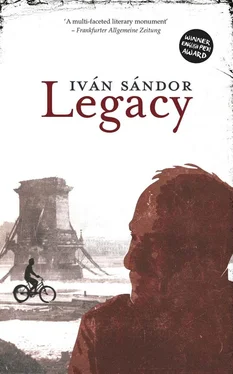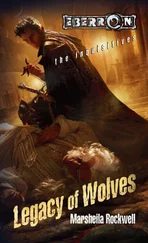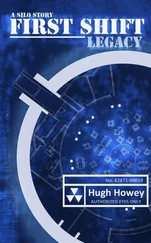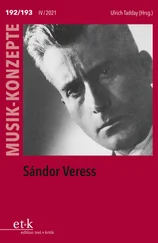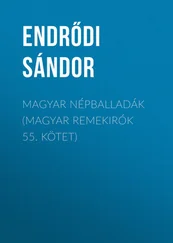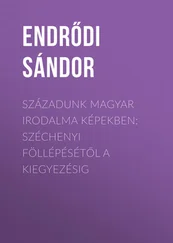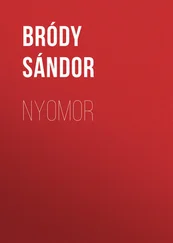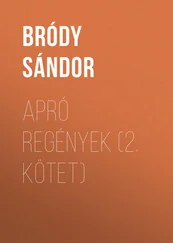I ask why all that is necessary. The master copy will be in Italian, she says, but Anna only speaks Hungarian and French, which is why Leone will pose the questions in French, which therefore — Understood, I say — Anna will translate for my benefit. The continuity girl takes me by the arm. There are now seven of those with whom I arrived sitting in the main hall and, of course, Ágnes. I don’t understand why I ever looked for her on the first floor. Leone, the editor-reporter, offers me a seat and tells us what he is looking for from those who have been invited. He is polite and gives advice. A camera operator studies our faces; he is also preparing for us, as if we were actors following the director’s instructions — as if everyone was obliged to re-enact what had happened to them, that’s what they are expecting from us. I am the youngest. Among us there is an 83-year-old woman who met Carl Lutz and has recollections of the meeting yet still ended up being transported to Auschwitz. He is going to ask about Auschwitz, Leone says, as solicitously as it is customary to ask a star actress to produce her own wonderful, inimitable style out in front of the camera.
It is no longer the eight of us survivors , as we are being called, who are listening to the instructions, preparing to meet the crew’s demands. I ask Anna straight away to go ahead and translate for Leone my interjection specifically that we not be considered survivors but witnesses. Leone nods and thanks me, but it seems as if he doesn’t get the difference. It may have been obscured in translation; perhaps the ground between the two categories is unbridgeable. Anyone can be a survivor, I say, both the victim and the executioner, whereas a witness is one who preserves, does not remember, does not accuse, does not defend, does not forget. Oui, oui, oui, oui , Leone nods. The director of photography is moving about between us. One of the ladies starts talking about how she was shoved into the line of people who ended up in the gas chamber at Ravensbrück, that she was able to avoid being gassed, and Leone would like her to stop her — better tomorrow, in front of the camera — but the words are now tumbling out of her. Anna is forced to translate, and I feel I have already read something similar to what the old girl is telling us — another elderly lady, not the one who was in Auschwitz. The story is familiar, much as if I had written it myself, so this evening I will put in a telephone call to Györgyi. Now it was me who has had to travel, but I will be back in Pest in five days’ time. Everyone is interrupting everyone else; everyone is recalling something from their own history; and Leone is forced to declare that we shall continue tomorrow in front of the cameras, but right now we have to move to the next room, where, one after another, we are sat in a big armchair: sound check; lighting check. We are puppet figures; it is not we who will be present with our fates, our stories, but what the moderator appearing on the screen will later refer to as history, and just as Leone is incapable of understanding the difference between a survivor and a witness it will also be left obscure to viewers. At Györgyi’s number only the answering machine picks up. I’m phoning from Locarno, I say to the machine. I see the elderly lady who is speaking about Ravensbrück and can’t be stopped, not even by Leone’s gentle hint. I see her very slowly raising her right hand — the gesture seems to take hours — defensively before her eyes. Is that because she is being blinded by the light, or she does not wish to see what she is remembering? A hand-held camera is working without instructions; maybe the cameraman already sees the picture on his viewfinder: an old lady screening her face.
An hour later I redial, and now there is another prerecorded message on Györgyi’s answering machine; perhaps she had come home in the meantime and heard mine. Thanks. I’ve read it. It’ll wait is the outgoing message, which can only be intended for me. I must have given her the telephone number of my hotel room in Locarno, although I can’t imagine why I would have bothered, as a telephone call would be expensive. I wonder where she has kept my manuscript — on a chest of drawers, next to her family snaps, or on the bedside table to be read before going to sleep, in nightshirt or pyjamas, or maybe she only keeps her knickers on, maybe she sleeps naked. Why do I suppose that she concerns herself with me at all? From the tone of her voice, I suppose, the recorded message she left was more than just those few words, as if they also denoted solidarity, curiosity, interest and not just the one to whom the text was addressed. Of course, why wouldn’t she be preoccupied with how I describe her.
Ágnes protested, fearing she could not express herself well in Hungarian. She was eight years old when Carl Lutz married her mother and moved away from Hungary. As she listened to what I had to say to her it was like she was listening to an incredible story, since the recollections that had stayed with her from when she was six had been preserved more like a nightmare, an endless cellar gloom, an endless series of detonations, an endless night is what she called it, and although even as a young girl she had then heard from her mother and later from Carl Lutz many things about what happened , as she put it, that was a quite different matter to having a conversation on the terrace of the Muralto Hotel about fate and history, about the eternally recurrent phrase in Lutz’s diary of I never could comprehend how it happened . Ágnes did not herself put it in this way; I helped her to find the words. She protested again, but it pleased me that I was able to find a way for her to express her own fate, having lost her Hungarian over the years. It was important for her to know what happened to me — as she put it, I want to understand my life . Simple words, I thought, and it was not just through lack of practice in Hungarian that she had been unable to say it that way — quite possibly she would be unable to express it so even in German — how she realized that she wanted to understand her life.

Anna must be in her forties: an oval face, harassed features, notebook and pen constantly in her hands. Although she rarely writes anything down, she translates fluently. Leone sits next to her, opposite me, near to the camera. Leone reads out his questions leaning towards her ear; she seldom asks him to repeat and concentrates on the questions that are to be interpreted, yet I still get a feeling she is more interested in what I say and as if what interests her more than my answers is how I look, just as I am more interested in the way Anna, and Leone behind her, look than in the questions that are being asked.
Anna’s glance oscillates in the time that opens up during her task: it is too big a gap for it to be navigable without effort, as if she could see only what just happens to be being spoken about at the moment. Only what just happens to be being spoken about at the moment, I note down on the balcony in the afternoon light after the first shoot. The shadows are lengthening on the sward of the park. Only what just happens to be being spoken about, I write, underlining the only in retrospect.
I write speedily, not always employing all the accents and punctuation marks which are called for in Hungarian.
Two figures are strolling hand in hand on a path separating the tennis court from the park. The man has on a pair of ducks and a polo-neck jumper of flame red with blue stripes, the woman a white linen skirt and flame-red jumper; they are emerging from under the leafy boughs of the park. The woman opens her yellow-and-white-striped parasol; a gardener in a straw hat is sprinkling the lawn.
Читать дальше
